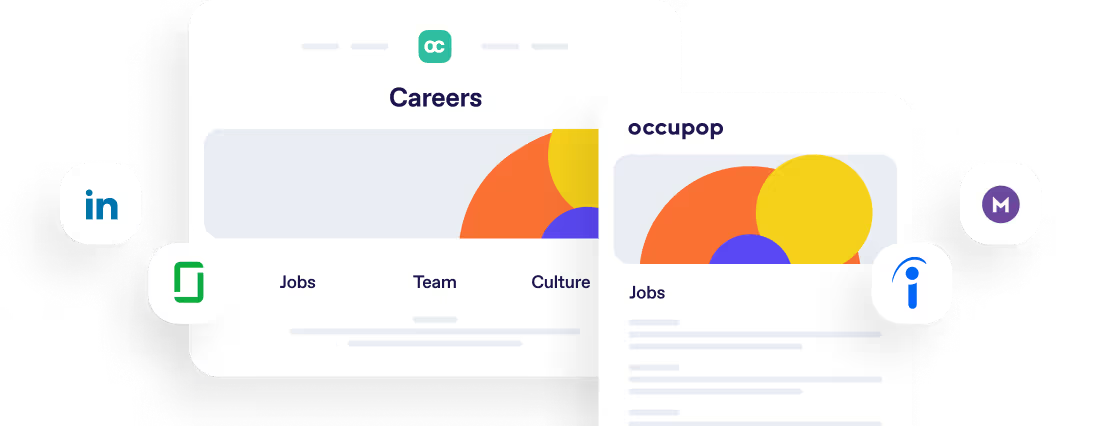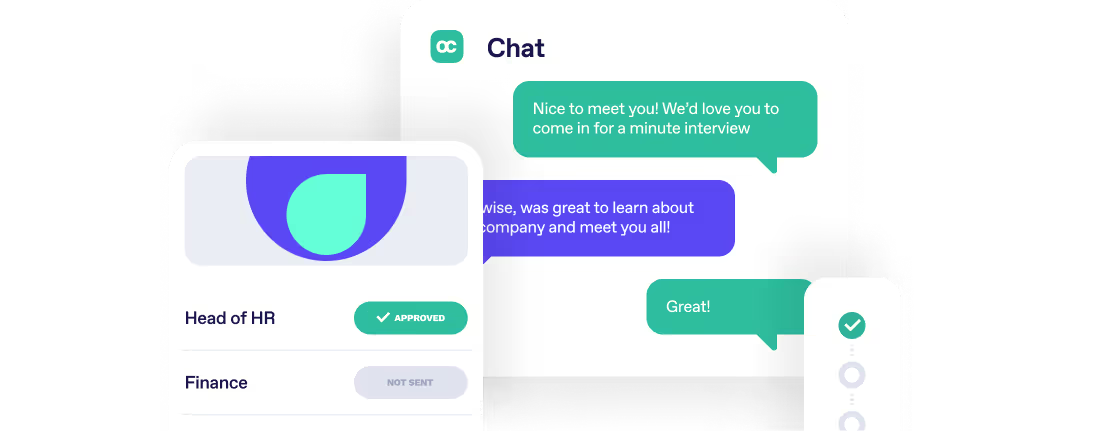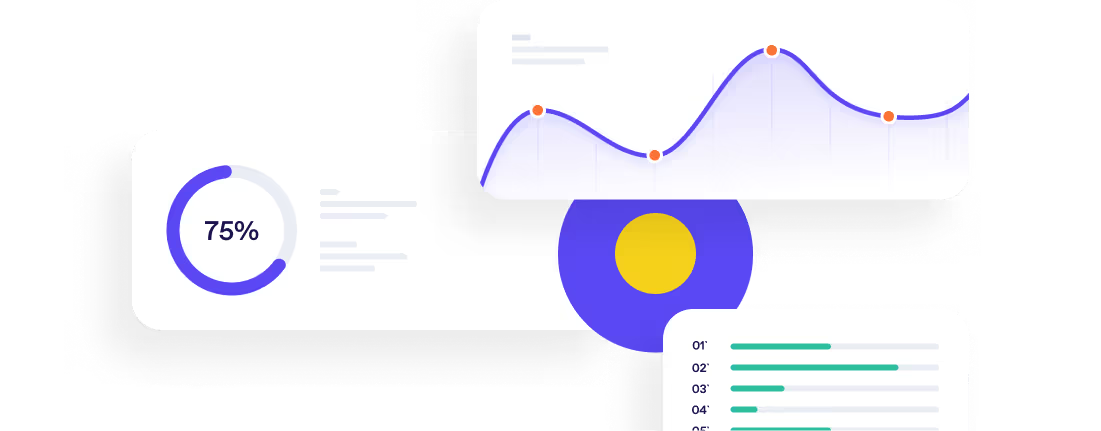How to Become a Better Interviewer



According to a LinkedIn survey, 83% of candidates say that a negative interview experience would make them not want to take the job, that means candidate experience should be the fundamental focus of your interview process. Not asking the right questions or using ineffective interview techniques could leave you without adequate data to make an informed decision on your hiring and could change the mind of that star candidate.
If you want to get more from your candidate interviews, you'll need to assess your current interview approach. This blog will discuss how to conduct face-to-face interviews, on the basis that a phone interview has already taken place, so you can be positive you are asking the right questions, the right way.
The Importance Of Job Interviews
The purpose of a face-to-face interview is to understand your candidate better. Remember, it’s not an interrogation and directing it as such will waste you and your candidates time. Face-to-face interviews should be treated as a way to assess your candidate's soft skills and determine whether they're a good fit for the job and company culture.
Tip: The interview process should begin with an initial phone interview before moving on to face-to-face interviews. Information regarding the candidate's demographics, such as their qualifications and experience, should all be collected and reviewed upon finishing the phone interview stage. This will cut out the need for ineffective back and forth and leave time to discuss worthwhile topics once you have moved to face-to-face interviews.
What is the best way to prepare before an interview?
Before the face to face interview process begins, it is good practice to supply candidates with an outline of the interview process. When candidates know the structure of an interview and understand what you expect of them, they feel at ease and can answer each question to the best of their ability. A recent Glassdoor survey found that 53% of candidates find clear communication of interview expectations to be central to a positive experience.
Provide them with information about the location, the format and running order. Giving candidates an overview is especially important if the interview will comprise of different stages and activities. Let candidates know who they'll be meeting beforehand and what kind of questions there will be. For example, if it is a technical interview, let them know if they'll have to do a coding exam on the day. Companies like Facebook equip candidates with a prep sheet before the day, allowing the candidate to relax and perform well.
Glassdoor also found one of the main causes of frustration for candidates during interviews is a lack of information provided by the employer. This can be regarding job responsibilities, pay, benefits but also, changes to the interview schedule as well as delayed responses from the hiring manager. To give your candidates an all-star experience, provide as much information upfront and always follow up with any candidate questions within a 24hr period.
INSERT-CTA
What is the best practice during an interview?
To begin, provide a brief description of the company and expectations of the role. Doing this ensures you and the candidate are on the same page before continuing the interview. Let the candidate know that there will be time towards the end to ask questions.
While interviews shouldn't be where the candidate learns everything about the company or the job they will be doing, there are some key areas of information you should share with the candidate. Linkedin found that the number one reason candidates took a new job was career progression, so be sure this is mentioned extensively. Other topics worth mentioning are; company culture, CSR (corporate social responsibility), team events, company benefits and wellness programmes.
After the candidate's questions, inform the candidate of how the remainder of the hiring process will be carried out. Be sure to let them know each step and an estimate of the time to hire. Leave them with contact details of a person they can get in touch with if they have any questions.
What is the importance of good interviews questions?
Using a diverse range of techniques during the interview will provide you with well-rounded responses regarding the candidates hard and soft skills.
Asking comprehensive interview questions will be the difference between a good interview and a great interview. Mastering this isn't about what you are asking, but rather how you're asking them. Asking a mixture of open, behavioural, probing, and comparative questions will ensure you conduct an effective interview and allows you to accumulate sufficient information to make an informed hiring decision.
The types of interview questions that can be used during an interview
Open questions
Open-ended questions are designed to allow the candidate to share information freely. Close-ended questions confine candidates to a short specific answer, which may not truly represent their real thoughts on a subject. By asking open-ended questions, you will gain a better understanding of who your candidate is. They also help to reduce response errors that may occur in the interview. Asking open-ended questions prevents candidates from responding the same way to each question.
When assessing the results from your open-ended questions, it's essential to consider that because these questions require candidates to think on their feet, they may not return thoughtfully articulated answers. However, it is an excellent way to learn how well candidates can present themselves and answers under pressure.
Nerves may also play a part for candidates, so it's essential to consider that some people do not interview well. The candidate may be everything you require on paper, so, it's up to you to decide whether the awkward interview will mark that candidate off as a no-deal.
Some examples of open-ended interview questions you may ask candidates:
- What accomplishments are you particularly proud of?
- What motivates you to do your best work?
- Tell me about a time you solved conflict within a team project.
Probing questions
One vital part of the interview process is following up with candidates after they have answered a question. When candidates answer a question, they're likely not to give you the full story. It's your job as an interviewer to help pull this information from them.
A tactic to effectively probe your candidates to always ask for elaboration on an answer. Gain additional information by simply asking your candidate to provide more information. The main idea is always to look to learn more after the candidate has answered.
Some examples of probing interview questions you may ask candidates:
- Why do you think it happened that way?
- how long do you work on that project for?
- What tasks had to be done to complete that project?
Behavioural Questions
These questions are designed to examine how a candidate reacts in a particular situation, or to explore their character in greater detail. Behavioural questions always have a significant role to play when interviewing candidates. They help gain an understanding of how that candidate would react in the future based on their past behaviour. This will provide you with helpful insights regarding the candidate's culture fit and possible career development.
Interviewers can do this by exploring how the candidate handled past situations and by asking them hypothetical questions on how they would perform in certain circumstances. Be specific for the most beneficial responses.
Some examples of behavioural interview questions you may ask candidates:
- Has there ever been a time you did x? Tell me about it?
- Tell me about a time when you’ve been overloaded with work. How did you go about prioritising your tasks?
- Give me an example of a high-pressure situation you faced in the last X months. How did you handle it?
Comparison Questions
Comparison questions are a great way to understand your candidates perspective on situations. This is a great way to see if the candidate’s way of thinking aligns with your companies. Ask your candidates to think back to previous positions they held.
Some examples of comparison interview questions you may ask candidates:
- How do you think the work you did in your last company will benefit you here?
- What did you most enjoy about your previous job?
- What aspects of your work or workplace would you change about your previous job?
What should you do after an interview?
After an interview, candidates want feedback, whether it be positive or negative. In fact, according to LinkedIn hiring statistics, 94% of talent wants to receive interview feedback and Glassdoor found that 51% want feedback regarding rejection.
Beyond letting candidates know if they were successful or not, let them know what areas of the interview they excelled in and where there's room for improvement. Candidates are 4x more likely to consider your company for a future opportunity when you offer them constructive feedback.
While the consequences of a bad candidate experience can be detrimental to your hiring, positive interview experiences have the power to completely change a candidate's perspective of your company. Linkedin found that 87% of candidates would change their mind about a company they had previously doubted if they provided a positive candidate experience, so going the extra mile means everything for your business and the candidate.
INSERT-LINE
What is Occupop?
Occupop is recruitment software that can greatly help you enhance your interview process. Occupop's easy-to-use platform will help you post easy-to-fill job descriptions across multiple channels and our A.I. technology will help you screen and score candidate CVs, presenting the most ideal candidates to bring to interview, to you first. Our platform then looks after the rest of the process; interview scheduling, hiring manager reviews, and email templates, so you can focus on the essential interview stages.
With Occupop, you can save 4-5 hours a week and up to 75% of recruitment costs, so that you can focus on the important stuff; delivering a winning interview process.
Learn more at www.occupop.com
Summary Points
Face-to-face interviews should be treated as a way to assess your candidate's soft skills and determine whether they're a good fit for the job and company culture. These are our tips to help you become a better interviewer during recruitment:
- Before the interview: ahead of a face to face interview process begins, it is good practice to supply candidates with an outline of the interview process.
- During the interview: Using a diverse range of techniques during the interview will provide you with well-rounded responses regarding the candidates hard and soft skills. Asking a mixture of open, behavioural, probing, and comparative questions will ensure you conduct an effective interview and allows you to accumulate sufficient information to make an informed hiring decision.
- After an interview: candidates want feedback, whether it be positive or negative. Beyond letting candidates know if they were successful or not, let them know what areas of the interview they excelled in and where there's room for improvement.
Simple. Beautiful.
Recruitment Software.
HR updates sent straight to your inbox
You might also like...


Manage your entire hiring process simply, from engagement to management, hiring and onboarding







Simple. Beautiful.
Recruitment Software.
Recruitment Software.






